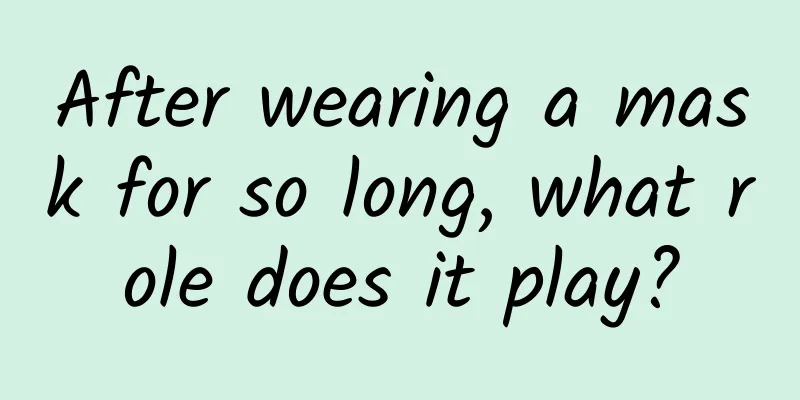After wearing a mask for so long, what role does it play?

|
As the global epidemic remains so severe, there is no need to say much about the important role of masks, because this new coronavirus has a very critical "weapon" - they can be transmitted through droplets (small droplets) . So what is droplet transmission? How do they spread from person to person? As early as 1897, German bacteriologist Carl Flügge discovered that pathogens exist in small droplets splashed from the human mouth. These droplets are sprayed into the air through the shear force generated by coughing or sneezing and achieve "droplet transmission", which is the main transmission route of respiratory infectious diseases. Before 1930, this view was the main basis for judging respiratory infectious diseases until William Wells proposed to divide respiratory droplets into "large droplets" and "small droplets" . At that time, he was working on the transmission of tuberculosis, and he found that simply "droplet contact infection" was not enough to fully explain the transmission route of respiratory infectious diseases. Because the droplets ejected from the mouth are large and small, the larger droplets are usually visible to the human eye, such as saliva in the mouth. The sedimentation rate of such large droplets is generally faster than their evaporation rate, so the area around the infected person is likely to leave pathogens. Smaller droplets originate from the mucous membranes of the lungs or vocal cords, and their settling rate is slower than their evaporation rate. As the droplets transition from the warm, moist respiratory system to the cooler, drier external environment, the water in the droplets evaporates quickly and forms dry residual particles, also known as aerosol particles. Simulating ocean salt particles | svs.gsfc.nasa.gov These particles are usually invisible to the naked eye (about 1 micron in diameter), but are a bit like dust particles suspended in a room under sunlight. Wells's dichotomy between droplets and aerosols has become the core concept of the respiratory disease transmission route classification system used by the World Health Organization and other agencies (such as the Centers for Disease Control and Prevention) to this day. Then, based on whether respiratory infectious diseases are transmitted through large droplets or small droplets, the transmission between hosts is classified as droplet or aerosol routes, and control strategies are further developed. Now that we know the transmission methods, let’s take a closer look at how they spread in the air. Not to mention the new coronavirus, the influenza virus and tuberculosis bacteria that have existed for a long time around the world are also respiratory infectious pathogens, so research on their transmission has been ongoing. In 2014, Lydia Bourouiba, director of the Disease Transmission Dynamics Laboratory at the Massachusetts Institute of Technology, used an optical method combining high-speed photography with backlighting to study the fluid dynamics during coughing or sneezing. The results showed that these ejected mucosal saliva droplets not only follow a short-range semi-ballistic launch trajectory, but more importantly, these droplets are not independent of their own motion trajectory . Most of the droplets will be captured by the "puff cloud" brought out by the sneeze (like the mist cloud sprayed from a spray bottle), forming a multiphase turbulent gas cloud. This cloud is like a "reborn parent" for the small droplets, because after leaving the comfortable environment of the respiratory system, they would have evaporated quickly in the external environment (the previous dichotomy did not consider the possibility of wet gas clouds), but the local humid and warm environment in the turbulent gas cloud greatly slowed down the evaporation rate, causing the life of the droplets to be directly extended from a few tenths of a second to several hours. And because the cloud has greater forward momentum, it can travel a greater distance than droplets carrying pathogens. If the patient's physiology and environment are taken into consideration, the maximum propagation distance can reach 7 to 8 meters when the cloud is in a payload state. In addition, it has now been confirmed that asymptomatic infected people may also spread COVID-19, even if they do not show any clinical symptoms, such as fever, cough, etc. But there is one thing they are all doing, that is talking. Yes, everyday speech also causes droplets to enter the air, and although they are usually ignored because they are too small, it is undeniable that they exist. A research article published in "Scientific Reports" in 2019 conducted an experiment. The authors used an aerodynamic particle meter to record the number and size distribution of droplets emitted when people talked in different spatial ranges. The results showed that the concentration of droplets (aerosol particles) splashed by human conversation will emit more droplets as the loudness of the sound increases, but the size and distribution of the droplets will not change , and this result is valid regardless of the language used. Precisely because various droplets can enter the air and spread, public health experts in almost all countries recommend that people wear masks when they need to go out in public places to reduce the spread of the virus between people in the community. So today, did you wear a mask when you went out? |
>>: Many people don’t know all these things about wine!
Recommend
Lucid, an electric car once invested by LeTV, tested: speed exceeds 378 kilometers per hour
When Lucid unveiled the prototype of its new Air e...
KOL Marketing: Why are couple KOLs more popular among advertisers?
Seemingly influenced by the advancement of the “s...
How do scientists know the secrets of distant stars? It turns out that they all have spectral "fingerprints"!
On March 30 this year, the world-renowned scienti...
The difference between starting a business and working from the perspective of CNZZ history
[[156898]] Actually, I have talked about the hist...
It’s all here! Nine self-developed efficiency-enhancing tools commonly used by user experience designers
In our Sanfenshe product design community, we oft...
To do operations, you need to understand these "unspoken rules"!
In the eyes of marketers , this business world is ...
A brief discussion on the deep learning technology behind AlphaGo
Introduction: There are many comments on Alfa Go,...
Li Deren and Xue Qikun won the 2023 National Highest Science and Technology Award! A quick look at the winners of the National Highest Science and Technology Award
The 2023 National Highest Science and Technology ...
A brief discussion on the "high refresh rate" of mobile phone screens
Perhaps the most popular term in smartphones sinc...
Super complete Douyin monetization methods and methods to increase fans
As an internet product person, I am only now star...
A fresh stream in the live broadcast industry, celebrities’ live broadcasts should be the transmitters of positive energy
When it comes to online live streaming, Internet ...
Eating cake = being poisoned? Does it really take 51 days to metabolize a mouthful of trans fatty acids?
Many people are familiar with "trans fatty a...
What is the price for sand painting performances on TikTok? How much does a 5-minute sand painting video cost?
Sand painting is becoming more and more popular a...
Oh my god, why are there so many furry rabbit tails growing inside the stone!
Happy days always pass by in a flash, and the Spr...
Want to eat the invasive alligator gar to endangerment? Be careful, it will kill you on the spot
Beijing Daily reported that two days ago, residen...









